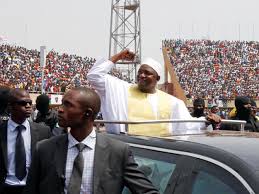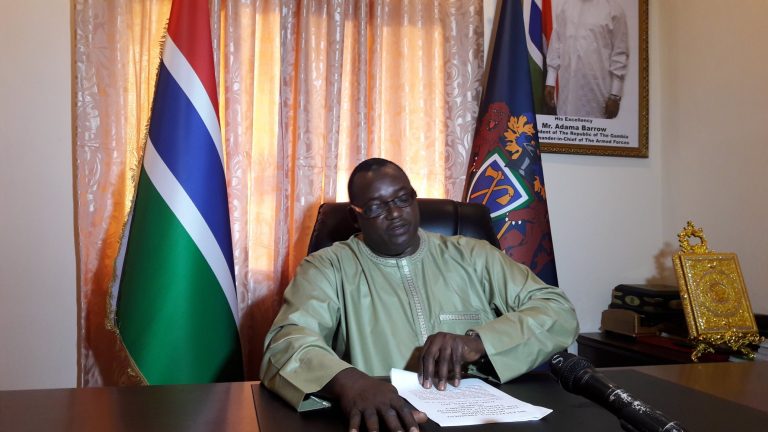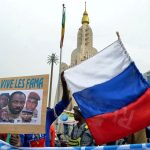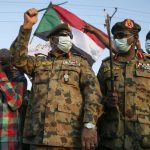The new APRC-NPP pact is Gambian President Barrow’s desperate move to win the second term. The party-to-party agreement is supposed to help the incumbent president’s desire to win support of the Diola ethnic group, electorate of ex-president Jammeh and his APRC party.
The Alliance for Patriotic Reorientation and Construction (APRC) stated about reaching an agreement with the National People’s Party (NPP) to re-elect President Adama Barrow for a second term.
Gambia President Adama Barrow dropped a political bombshell ahead the campaign season for the 4th of December presidential polls by forming an alliance with the political party of exiled former dictator Yahya Jammeh. The shock announcement shook Gambians who have lived through 22 years of Jammeh’s iron-fistedrule. The Jammeh regime victims were hit pretty hard.
Barrow gave a thumb up to the agreement during a crowded rally, telling his jubilant supporters that the alliance would propel him to election victory in December.
APRC, the former ruling party of former leader Yahya Jammehс (ethnicDiola), lost the 2016 election to the independent candidate Barrow, current leader of the NPP. Upon announcement of the result by the Independent Election Commission, the former president conceded defeat but later made a dramatic turnabout by claiming that the election was rigged and he called for a re-election. After initially acknowledging that Barrow (ethnic Fula/ Mandinka) won a late-2016 election, Jammeh refused to leave office until West African leaders decided to send Senegalese soldiers and Nigerian fighter jets to the capital. Jammeh’s refusal to step down led to political impasse forcing about 40,000 Gambians to flee to Senegal.
According to officials the part of the agreement APRC guarantees Yahya Jammeh, who is currently is in exile in Equatorial Guinea, his return to the country peacefully and with dignity.
Thus, the former dictator’s return from exile in case of re-election of Mr. Barrow was one of the agreement clauses.
Thus, we have doubts in the government’s willingness to prosecute Yahya Jammeh. A commission of inquiry into crimes committed during his presidency is due to report its findings to President Barrow in September.

Originally Barrow agreed to stay in power as a transitional authority for three years, stepping down on January 19, 2020. However, when the term expires he started laying the groundwork for extending his tenure in office. In late December 2020, Barrow formed a new political party, the National Peoples Party that would allow him to contest during the next year’s presidential election.
Barrow may hope that he will succeed in presenting this agreement as a political party agreement rather than an agreement between him and ex-president Jammeh. In this context he can refer to the 2016 precedent when 7 parties united to remove Jammeh from the presidency. However, obviously, people of the Gambia, especially victims of the reign of Jammeh, will consider Barrow as a traitor. In addition, this very decision will influence his electoral support.
At the same time, the ruling party officials said the purported Memorandum of Understanding in circulation is a manufactured, malicious piece of junk, calculated by detractors to undermine the NPP/APRC Alliance to create confusion and suspicion in the minds of Gambians. Some victims say that the pact with Jammeh’s party has dashed their hopes for justice for the crimes committed during Jammeh’s time. Some victims have already refused to be identified because they are afraid of Jammeh’s return to power.
Although the terms and conditions of the agreement between Barrow’s National People’s Party (NPP) and Jammeh’s Alliance for Patriotic Reorientation and Construction (APRC) party have not been disclosed, senior APRC officials say Barrow will grant Jammeh amnesty if he wins the December polls.
Reportedly, he would have the right to allow Jammeh to return to Gambia.
APRC interim party leader Fabakary Tombong Jatta, party head in parliament during the days of dictatorship, described the party as a victim of mudslinging, and hailed the coalition agreement as a victory for human rights.
Gambia has no ethnic conflict background. The recent tension has its roots in a series of vitriolic campaign speeches Jammeh, gave to supporters in June 2016 where he referred to Mandinkas as ‘enemies and foreigners’ and threatened to ‘bury them six feet under’.
Barrow’s recent calls for a peaceful campaign can be explained by his fears that Jammeh and forces loyal to him will try to destabilize the country.




